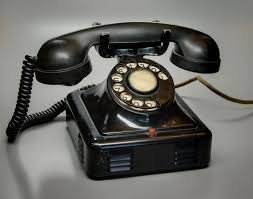Telephone: History, Types, and Modern Uses

Introduction
Imagine a world where instant communication wasn’t possible—no mobile phone in your pocket, no landline at home, and no smartphone connecting you to the internet. That world existed before the telephone was invented. The telephone revolutionized communication, making it faster, easier, and more accessible across the globe. From the first rotary phone to today’s advanced smartphones, the telephone has played a vital role in shaping society and business.
In this article, we’ll explore the history, evolution, and importance of the telephone, covering everything from early landlines to modern mobile technology.
The History of the Telephone
The telephone was invented in 1876 by Alexander Graham Bell, forever changing how people interacted. Before its invention, long-distance communication relied on letters or the telegraph, both of which were slow compared to real-time voice transmission.
Key Milestones in Telephone History
- 1876 – Alexander Graham Bell patents the first telephone.
- 1890s – Telephone exchanges and switchboards appear.
- 1920s – Widespread use of rotary phones.
- 1960s – Touch-tone dialing replaces rotary dials.
- 1980s – The first mobile phones are introduced.
- 2000s onwards – Smartphones revolutionize communication with internet access, apps, and multimedia.
The telephone evolved from a simple voice device into a multipurpose communication tool that powers both personal and business life.
Types of Telephones
Over the years, different types of telephones have been developed, each serving unique needs.
1. Landline Telephone
- Uses wired connections.
- Reliable for stable voice calls.
- Common in homes and offices.
- Declining in popularity but still used in rural areas and businesses.
2. Rotary Phone
- Iconic design from the 20th century.
- Operated with a circular dial.
- Considered a vintage collector’s item today.
3. Mobile Phone
- Wireless communication device.
- Offers portability and convenience.
- Replaced traditional landlines for many users.
4. Smartphone
- Advanced version of a mobile phone.
- Offers internet access, apps, cameras, and multimedia.
- Serves as a personal computer in your pocket.
Importance of the Telephone in Modern Life
The telephone is more than just a device—it’s a lifeline. Here’s why:
- Personal Communication: Connects families and friends worldwide.
- Business Use: Enhances customer service, virtual meetings, and global trade.
- Emergency Services: Quick access to police, hospitals, and fire departments.
- Education & Learning: Smartphones allow access to online classes and resources.
Advantages of Telephones
- Real-time communication.
- Global connectivity.
- Reliable in emergencies.
- Versatile with texting, calling, and video chats.
- Boosts business productivity.
Disadvantages of Telephones
- Mobile addiction due to smartphones.
- Privacy concerns.
- Landlines can be costly to maintain.
- Network issues in remote areas.
Future of Telephones
The future of the telephone is closely tied to technology. With advancements like 5G networks, AI-powered virtual assistants, and internet-based calling, telephones will continue to evolve into smarter, more efficient devices.
Internal Linking Suggestions
- Microphone Guide 2025 – Types, Uses & Buying Tips
- Link to a guide on how smartphones impact modern business.
- Link to a comparison of landline vs. mobile phones.
External Authoritative Sources
FAQs About Telephone
1. Who invented the telephone?
The telephone was invented by Alexander Graham Bell in 1876.
2. What is the difference between a landline and a mobile phone?
A landline uses wired connections, while a mobile phone uses wireless signals, offering portability and internet access.
3. Are rotary phones still used today?
Rotary phones are mostly obsolete but remain popular as vintage collectibles.
4. How have smartphones changed communication?
Smartphones allow video calls, social media, online learning, and instant messaging—far beyond traditional voice calls.
5. What is the future of telephones?
With AI, 5G, and IoT, telephones will become smarter, faster, and more integrated into daily life.
Conclusion
The telephone remains one of the most important inventions in history. From the classic rotary phone to today’s powerful smartphones, telephones have shaped the way we communicate, work, and live. As technology advances, the telephone will continue to evolve, offering even more opportunities for global connection.
Call-to-Action:
Whether you’re interested in learning about vintage landlines or the latest smartphones, keep exploring our tech articles to stay informed about the future of communication.
Would you like me to expand this article with extra technical details (like how telephones work with signals and networks) to push it closer to 1500+ words for stronger SEO impact?
You have not enough Humanizer words left. Upgrade your Surfer plan.


